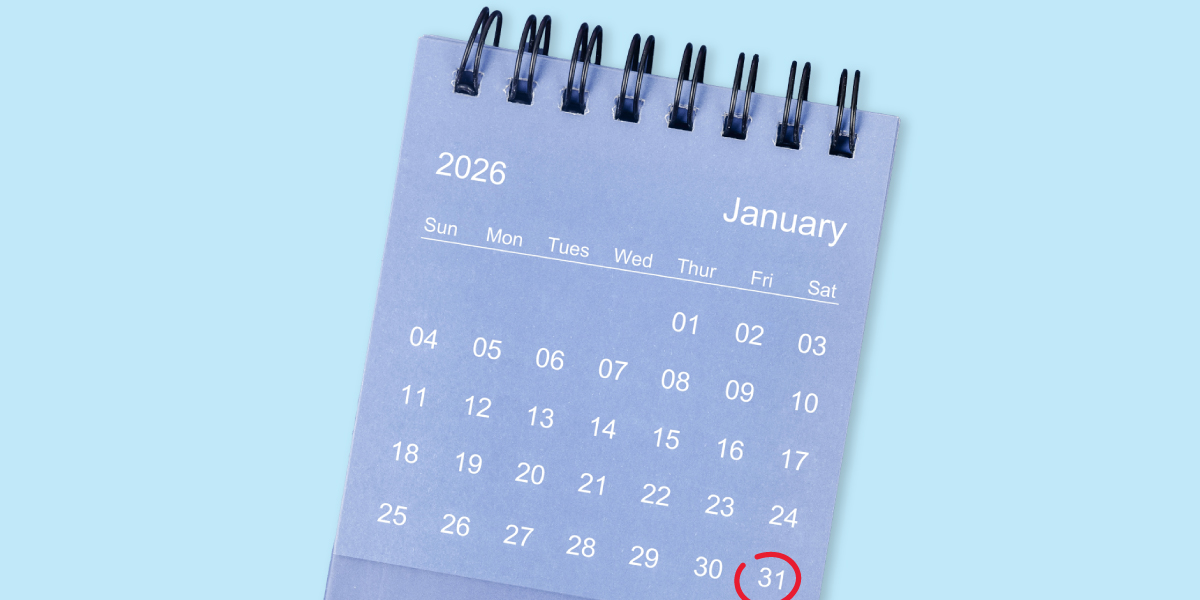
MEMBER EXCLUSIVE
Members can use GoSimpleTax to file to HMRC at a great price and avoid costly accountant fees.
Get started
If you miss the deadline to file your self-assessment tax return, HMRC could automatically charge you £100 if your return is up to 3 months late – or more if it's later.
HMRC must have received your tax return by 31 October 2025 for paper forms, and by midnight on 31 January 2026 for online returns.
One day to three months late
You may be charged £100 if your tax return is just a day after the deadline.
More than three months late
If you still haven't filed your form after three months, you're charged £10 for each additional day (capped at 90 days), plus the £100 initial fine – to a maximum of £1,000.
More than six months late
You'll be charged £300 or 5% of the tax due (whichever is higher), on top of the penalties above.
12 months late
An additional £300 fine, or 5% of the tax due (if higher), plus the above penalties. In the most serious cases, you may be fined up to 100% of the tax due.
If you're part of a business partnership, note that all partners can be charged a penalty if a partnership tax return is filed late.

Members can use GoSimpleTax to file to HMRC at a great price and avoid costly accountant fees.
Get startedIn addition to getting fined for filing your tax return after the deadline, you could also face charges for failing to pay your tax bill on time.
The deadline for paying any outstanding tax is 31 January after the end of the tax year (unless you're paying through PAYE).
If you miss this deadline, you'll be charged interest from the date the payment was due. This is set at the Bank of England base rate plus 4%. You can check the current rate payable on HMRC's website.
You could also face the following penalties if you pay late:
These charges are separate, and in addition to, any charges for filing your tax return late. You can calculate your potential penalties using the gov.uk calculator.
Sometimes things happen that mean you can't file your tax return on time. HMRC will accept certain 'reasonable excuses' for being late.
A reasonable excuse is defined as being 'normally something unexpected or outside your control that stopped you meeting a tax obligation.'
If HMRC accepts that you had a reasonable excuse, it should waive any late charges.
Examples of reasonable excuses include:
Each case will be considered individually. It's always best to file your return in plenty of time before the deadline if possible.
If you were planning to file a paper tax return, but don't think it will reach HMRC by the 31 October deadline, don't send it off late.
Instead, you can complete an online tax return, which means you'll have an extended deadline of 31 January the following year.
You cannot submit a late paper return followed by an on-time online tax return - HMRC will fine you according to the return it receives first.
There is a system of penalties for mistakes on your tax return. What you're charged with will depend on whether HMRC thinks you have just been careless, or have purposely tried to lie about how much you earn.
Penalties are based on the amount of tax you owe, and are payable in addition to the tax owed.
If you realise you made a mistake, you can correct your tax return for up to a year after the filing deadline via the HMRC online portal or via your software provider. After this timeframe, you'll need to write to HMRC to explain the circumstances and request a change.
For paper tax returns, you'll need to download a new return and mail it to HMRC with 'Amended' written on each corrected page.
If you're still confused about your tax return, there's help out there.
HMRC has an in-depth guide called How to fill in your Tax Return, with section-by-section notes on what you need to report, and how to do it.
Elsewhere, there are a number of help sheets for more specific topics like pension tax charges and student loan reductions.
Taxpayers can get help from HMRC in writing, face-to-face at HMRC offices, or by calling the following telephone lines:
The Self-Assessment Helpline (0300 200 3310) can offer general tax advice, and help with filling in your tax return. The service is open Monday to Friday, from 8am to 6pm.
If you are struggling to pay your tax bill, check HMRC's guidance.
Use the jargon-free calculator provided by GoSimpleTax to complete and securely submit your tax return direct to HMRC.
Calculate your tax bill